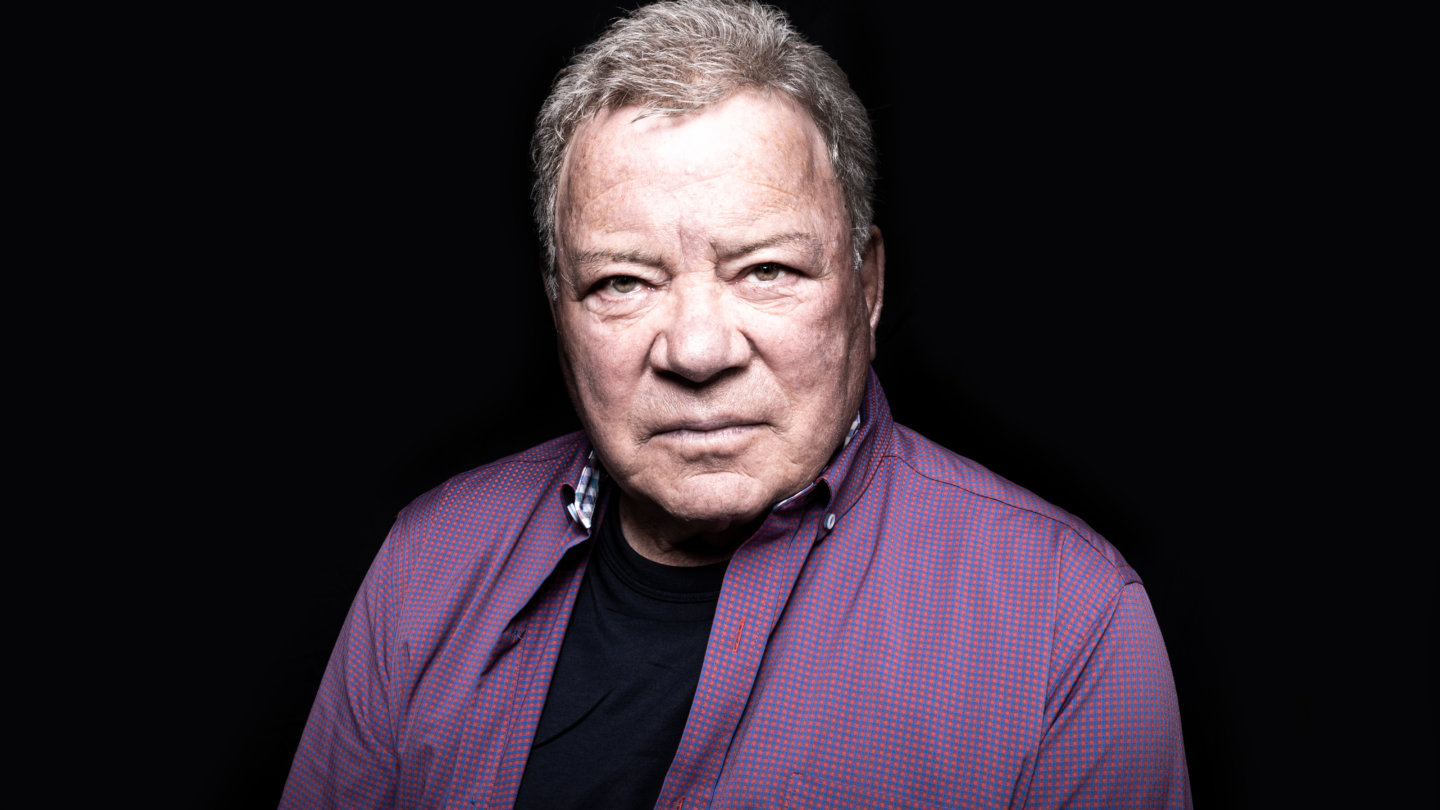It’s the revelation Trekkies never saw coming. At 94 years old, William Shatner, the legendary actor who defined Captain James T. Kirk, has finally opened up about the real story behind Star Trek — and it’s far darker than anyone ever imagined.

In an emotional, unfiltered conversation, Shatner described the set of the beloved 1960s sci-fi series as “a galaxy of egos, cold stares, and quiet resentment,” pulling back the curtain on a world once thought to embody unity and exploration. “We weren’t a crew,” Shatner admitted bluntly. “We were barely a team. We were actors trying to survive each other.”
For decades, fans believed that the Star Trek family shared the same camaraderie that defined the USS Enterprise. But Shatner’s truth tells a different tale — one filled with rivalries, jealousy, and bitterness that never fully faded, even after the show’s success.
No revelation hits harder than Shatner’s account of his lifelong feud with George Takei, the actor behind Mr. Sulu. “George was distant even back then,” Shatner said, sighing. “I tried to bridge that gap, but there was always something simmering. I never quite knew what I did — maybe I took up too much space.”

For years, Takei has accused Shatner of arrogance and dismissiveness, once calling him “an egotist who couldn’t see past his own reflection.” The bitterness famously spilled into the public eye when Shatner claimed he wasn’t invited to Takei’s 2008 wedding — a claim Takei insists is false.
Now, Shatner says the feud “became something bigger than both of us.” With age, he admits to regret: “If I could talk to George today — really talk — I’d tell him I’m sorry if I ever made him feel small. We were part of something historic. I wish we could’ve seen that then.”
Perhaps the most heartbreaking confession centers around Shatner’s complicated friendship — and eventual falling out — with Leonard Nimoy, the man behind Spock. “Leonard was my brother,” Shatner said softly. “But brothers fight. And sometimes, they stop talking. That was our tragedy.”
The two men’s relationship soured in the later years of Star Trek, as Nimoy’s rising popularity created an invisible wall between them. “He became the fan favorite,” Shatner admitted. “And I didn’t handle it well. I was proud of him, but I was also jealous. It’s a terrible thing to realize that about yourself — especially when it’s too late to say so.”

When Nimoy passed away in 2015, Shatner was heartbroken — and haunted. “He stopped returning my calls near the end,” he said. “I don’t know why. I still don’t. But I miss him every day.”
For fans who grew up idolizing Shatner as the fearless Captain Kirk, these revelations mark a jarring contrast. Beneath the charm and confidence was a man consumed by pressure, isolation, and insecurity. “People saw a captain,” he said. “But I was just an actor fighting to stay afloat — in a business that eats you alive if you let it.”
Co-stars reportedly resented what they saw as Shatner’s “need for control” and “camera dominance,” with production insiders claiming heated arguments broke out regularly on set. Yet, despite the tensions, Star Trek became a global phenomenon — one that outlived its creators, its network, and even its original conflicts.
Now, at 94, Shatner says he’s done hiding behind nostalgia. “Everyone wants to remember Star Trek as this perfect dream. But dreams have shadows. And it’s time to admit ours did too.”
Even as he approaches his 95th birthday, Shatner remains philosophical — proud, reflective, and unafraid of honesty. “I’ve made peace with my past,” he said. “But the thing about legacies is… they don’t belong to you. They belong to the people who remember you — and I hope they remember me as someone who tried.”
For the millions of fans who grew up watching Captain Kirk boldly go where no man has gone before, these revelations are a reminder that heroes are human, too — flawed, fragile, and, at times, painfully real.
The final frontier, it seems, wasn’t space — it was truth.





